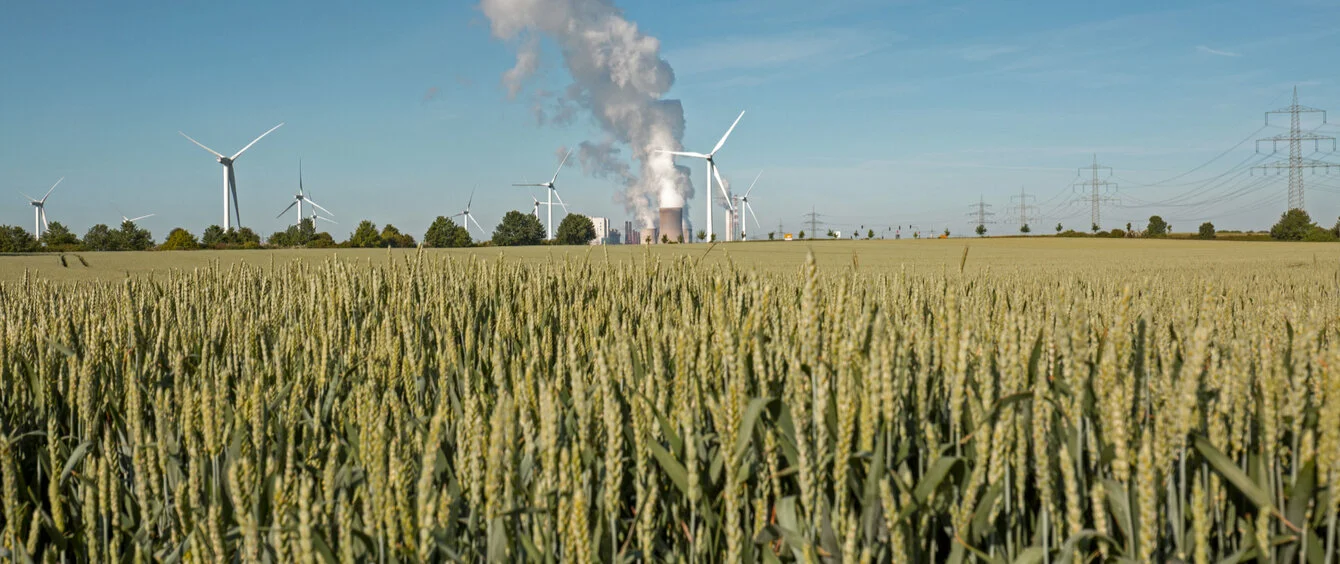It will still be a while before the final figures on power generation or emissions in Germany are available for 2019. Preliminary calculations, however, are already showing that the energy transition in the electricity sector is coming along nicely and bringing the German government’s climate goals that one step closer. Figures from the German Network Agency have also showed that the country’s electricity exports and imports have been subject to significant changes.
According to a recently published survey by Agora Energie Wende, greenhouse gas emissions decreased considerably once again in Germany in 2019. Last year, the volume of total emissions was 811 million metric tons, 35 percent less than in 1990. According to Agora’s conclusion, this seems to have brought 2020’s target of scaling back emissions by 40 percent versus 1990 within reaching distance. The electricity sector is solely responsible for this decrease.
More power from renewables, less from coal
According to Agora, electricity generation from renewable sources was higher in 2019 than ever before, clocking in at a solid 243 terawatt hours (TWh). Renewable energy thus covers 42.6 percent of gross electricity consumption in Germany.
At the same time, as had already become clear over the course of last year, electricity production from coal-fired power plants declined significantly. In 2019, 114 TWh of electricity was generated from lignite. This represents a deficit of 21.7 percent compared to 2018. The drop in electricity generation from hard coal was even more pronounced, amounting to 31.1 percent compared to 2018. Thus, at 56.9 TWh, electricity production from hard coal was significantly lower than from natural gas, which rose by 8.8 TWh to 91.3 TWh. Gas-fired power plants have thereby taken over some of the electricity generation previously accounted for by coal.
Electricity production in Germany 2019 (preliminary)
Gross power generation in TWh; Source: Agora EnergiewendeElectricity mix in Germany 2019 (preliminary)
Contribution of energy carriers to gross electricity generation; Source: Agora EnergiewendeHigher CO2 prices, power plant units as operating reserve
The main reasons for this turn of events are the comparatively high prices for CO2 certificates and the low price of gas. In addition, older hard coal-fired power plants, such as Unit K of the Gersteinwerk power station, have been decommissioned whilst other units of lignite-fired power plants (Jänschwalde and Neurath) have been transferred to what is known as an operating reserve. When in this state, the station can be reactivated at ten days’ notice in the event of severe shortages in electricity supply over the next four years.
The energy industry is also planning another major contribution for 2020. According to initial drafts of the Coal Phase-out Act, a further 4 gigawatts of hard coal-fired power plant capacity are to be taken off the market as early as the latter half of 2020, thus contributing to the reduction of greenhouse gas emissions in Germany.
Falling exports, rising imports
German electricity exports also dropped in 2019, as more electricity also flowed into Germany from abroad. The export surplus of 35.1 TWh was at a six-year low. Austria was the main customer of German power, meaning about one-third of all electricity exports went to the neighbouring country to the south. According to the German Environment Agency, the country has had surpluses in cross-border electricity trading since 2003. Since then, domestic electricity consumption has consistently been lower than electricity generation.
Photo credits: RWE AG
